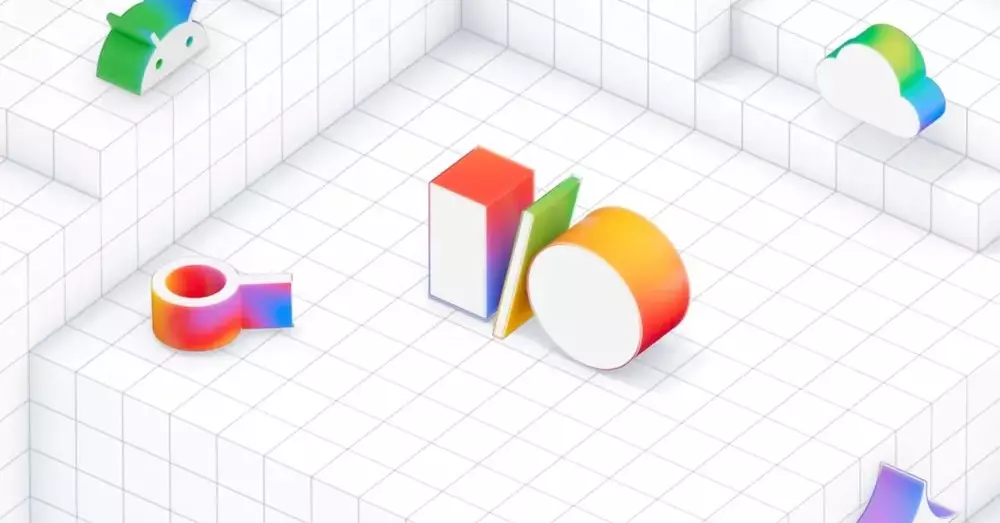As the tech world prepares for Google’s annual I/O developer conference, the excitement surrounding the keynote has reached a fever pitch. For the first time in numerous years, a significant shift in focus has rendered the anticipation for Android operating system updates relatively muted. Instead of the usual buzz surrounding device launches and OS enhancements, this year’s event will primarily illuminate the grandeur of artificial intelligence (AI) and extended reality (XR). The implications of this shift are vast, reshaping not only how we perceive technology but the very fabric of our interactions with the digital world.
The keynote is set to kick off on May 20th at 10 AM PT / 1 PM ET, and attendees can expect an engaging presentation streamed across multiple platforms, including Google’s I/O site and YouTube. The conference’s agenda, spanning two full days, signals an understanding that while device reveals may take a backseat, the advancements in AI and XR are poised to captivate the audience. Unlike previous sessions that might have focused heavily on tangible products, this year’s event promises a deep dive into transformative technologies that will define the next era of interaction and user experience.
AI Takes Center Stage
This year’s keynote is particularly noteworthy because it will pivot significantly toward AI topics, with Google’s Gemini ecosystem likely prepared to showcase its latest features and enhancements. In a competitive landscape that includes powerhouses like OpenAI, Meta, and Microsoft, Google has found itself in a race to innovate and dominate the AI sector. The recent surge in AI capabilities offers a unique opportunity for Google to position itself firmly at the forefront of this rapidly evolving field.
The continuity of this emphasis on AI is not just a fleeting trend but signals a substantial commitment to integrating intelligent systems across all devices and services. With each iteration, Gemini evolves, promising improved functionality that is expected to integrate seamlessly across various devices, from smartphones to smart home technology. Furthermore, insights into ambitious initiatives like Project Astra may bring forth bold ideas reflective of Google’s long-term vision for AI, hinting at projects that embrace an almost futuristic approach to technological interaction.
Extended Reality on the Horizon
While the spotlight firmly rests on AI, Google has reassured audiences that XR will not be neglected. The previous week’s emphasis on Android’s capabilities indicated some integration with XR, but much was left unsaid regarding the developments in Google’s prototype smart glasses. As XR technology becomes increasingly mainstream, Google faces pressure to deliver captivating content during the I/O conference.
Given that rivals such as Samsung have made strides in XR hardware with their Project Moohan, Google’s forthcoming presentations could be their last major platform to articulate their strategy before others monopolize the narrative. Although announcements regarding new hardware remain uncertain, any updates surrounding the software aspects of XR and its compatibility with various devices might be game-changers that enhance Google’s ecosystem.
A Paradigm Shift in Product Development
This year marks a distinct departure from Google’s historical practices of using I/O to unveil new Pixel devices or Nest home technology. This intentional radio silence concerning new hardware signifies a broader strategy where AI advancements take precedence over consumer electronics. It reflects a keen awareness of the competitive landscape where software capabilities can frequently outshine even the most innovative hardware.
This approach could redefine how technology companies develop and showcase products. By emphasizing software over hardware, Google might encourage users to recognize the potential of AI-driven interactions, rather than simply gravitating towards impressive devices. The shift hints at a future where the underlying technology—its usability, intelligence, and integration—becomes far more crucial than the aesthetic or performance of the devices themselves.
The Road Ahead
As we gear up for the I/O conference, the landscape is unmistakably changing. Google is not just participating in the conversation around AI and XR; it seems to be steering it. With a focus on merging advanced AI systems with newer technologies, the company has the potential to redefine user experiences and how we engage with the world around us. As the lines between digital and physical realities continue to blur, events like Google I/O are not merely informative; they are pivotal moments that will significantly influence how technology shapes our future.

